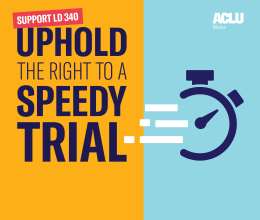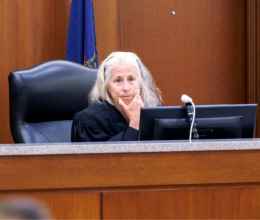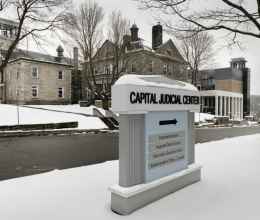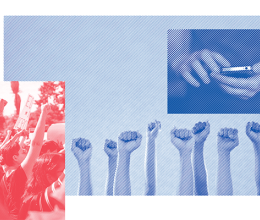PORTLAND — The State has agreed to return unemployment benefits it seized from about 50 incarcerated workers at the onset of the COVID-19 pandemic. The federal court in Portland today received a request from the State to approve the settlement of a class action lawsuit challenging the State’s seizure of unemployment benefits that had been awarded when COVID-19 forced the plaintiffs to leave their work release jobs in the community.
Lead plaintiff Marc Sparks worked 40-50 hours a week as a grill cook at a local Applebee’s. The work release program helped incarcerated people, who are near the end of their sentence, make a successful transition back to their communities. Sparks and other class members were saving up the wages they earned so they could afford stable housing, food, and other necessities upon their upcoming release. They also depended on their wages to support their families and children, many of whom are below the poverty line.
In March 2020, Mr. Sparks and the other incarcerated workers were told they could no longer work in the community due to COVID-19. The Maine Department of Labor found the workers eligible for the special COVID-19 unemployment benefits and began making weekly cash payments into their prison accounts after making deductions for room and board, child support, restitution, and other debt payments. Like millions of American workers who found themselves suddenly unemployed at the onset of the pandemic, the class members relied on unemployment benefits to care for their families and meet their basic needs.
But then about six weeks later, without giving notice or an opportunity to challenge the decision, the State removed the workers’ unemployment benefits from their prison accounts.
“The purpose of the work release program and unemployment benefits is to ensure incarcerated people have access to financial security and employment when they return to their communities,” said Carol Garvan, legal director at the ACLU of Maine. “Our communities are safer when formerly incarcerated people have a foundation for a successful return home.”
The settlement returns the unemployment benefits seized from the workers’ prison accounts and recognizes that the money in their prison accounts is their property — meaning that the State can’t seize money from these accounts without due process.
“Everyone — including an incarcerated worker — is entitled to equal protection and fair treatment under the law, said David Webbert, managing partner at Johnson & Webbert, who serves as co-counsel in the lawsuit. “The settlement helps ensure that the State treats every Mainer with respect and dignity and that we don’t have any second-class people with second-class rights.”








